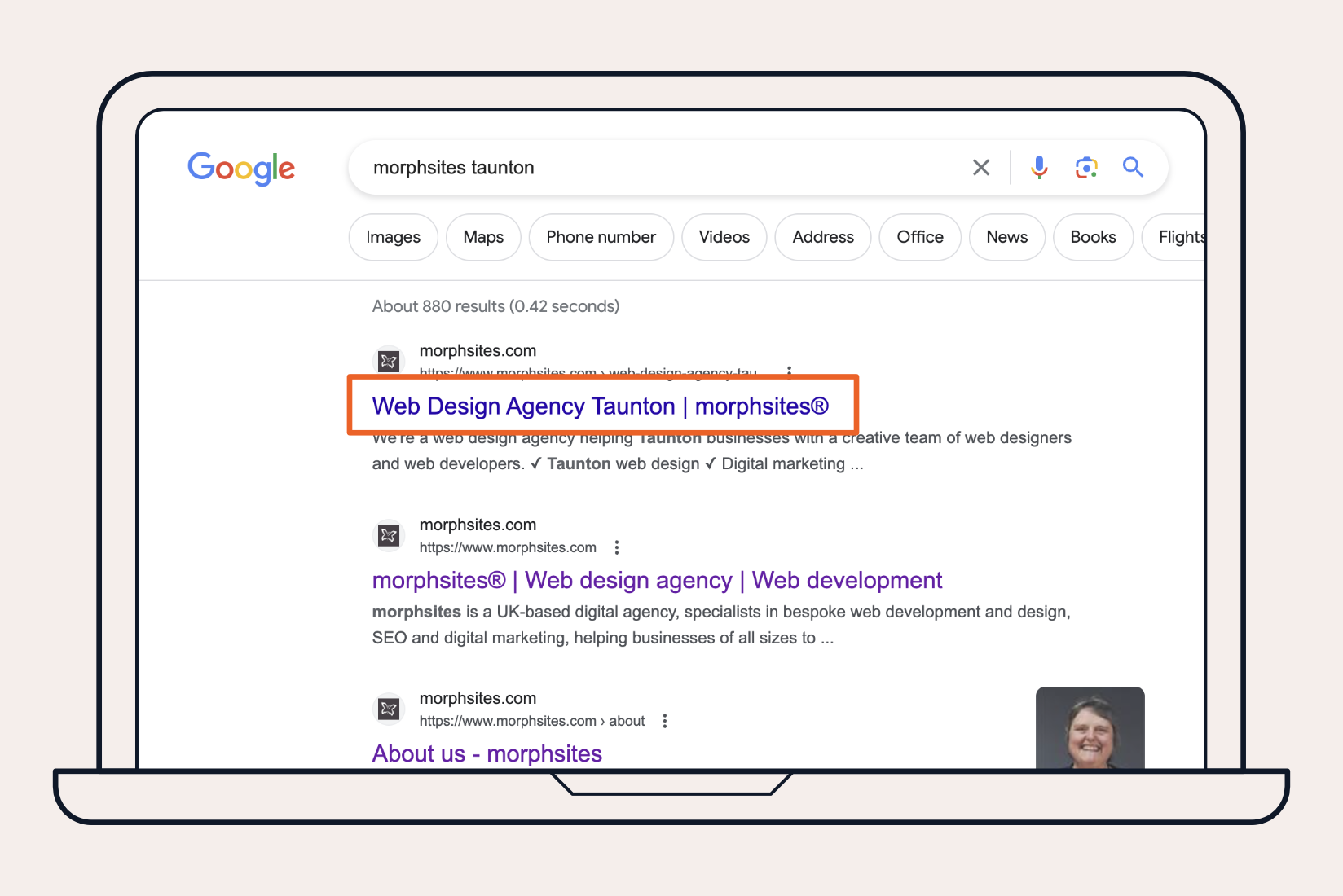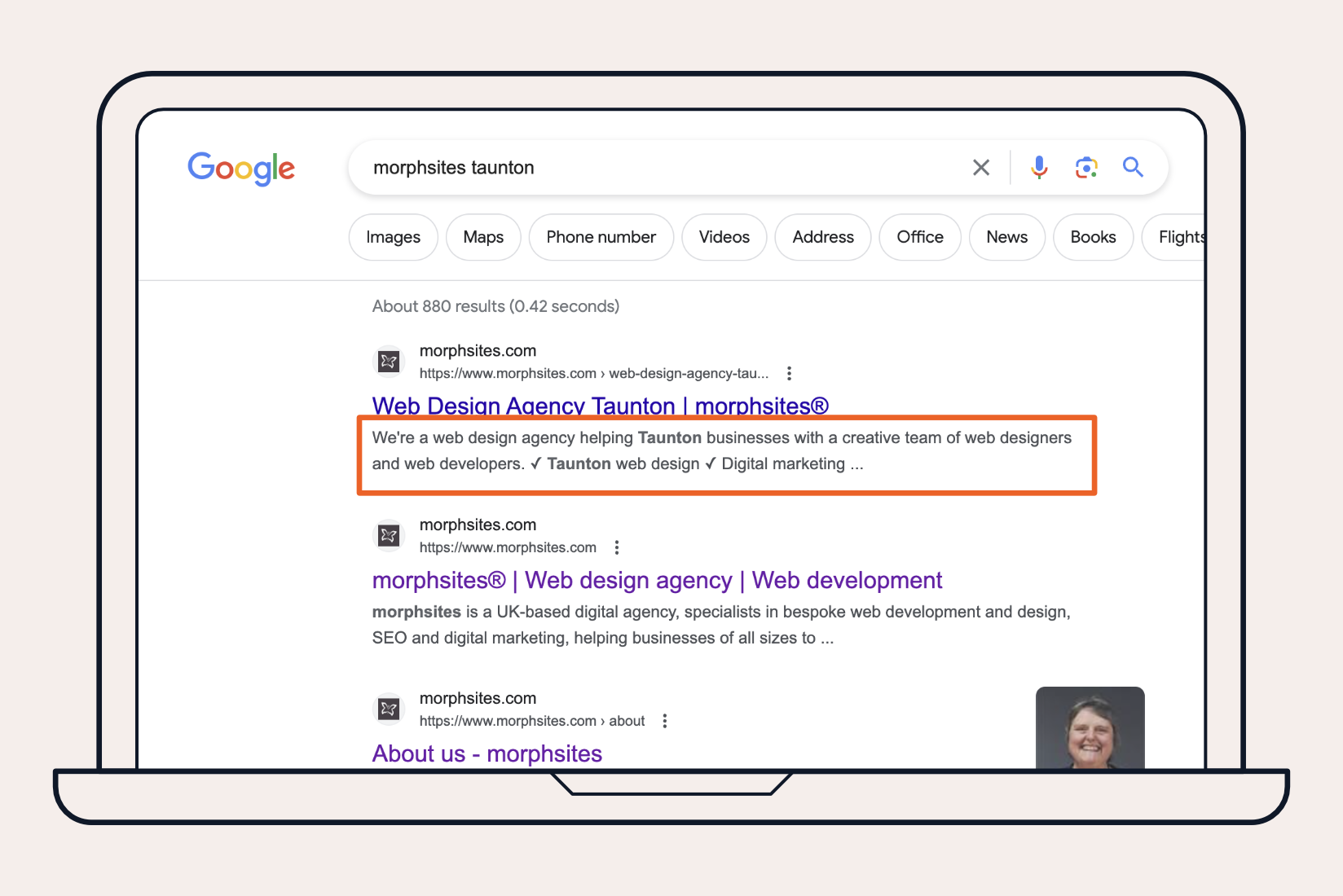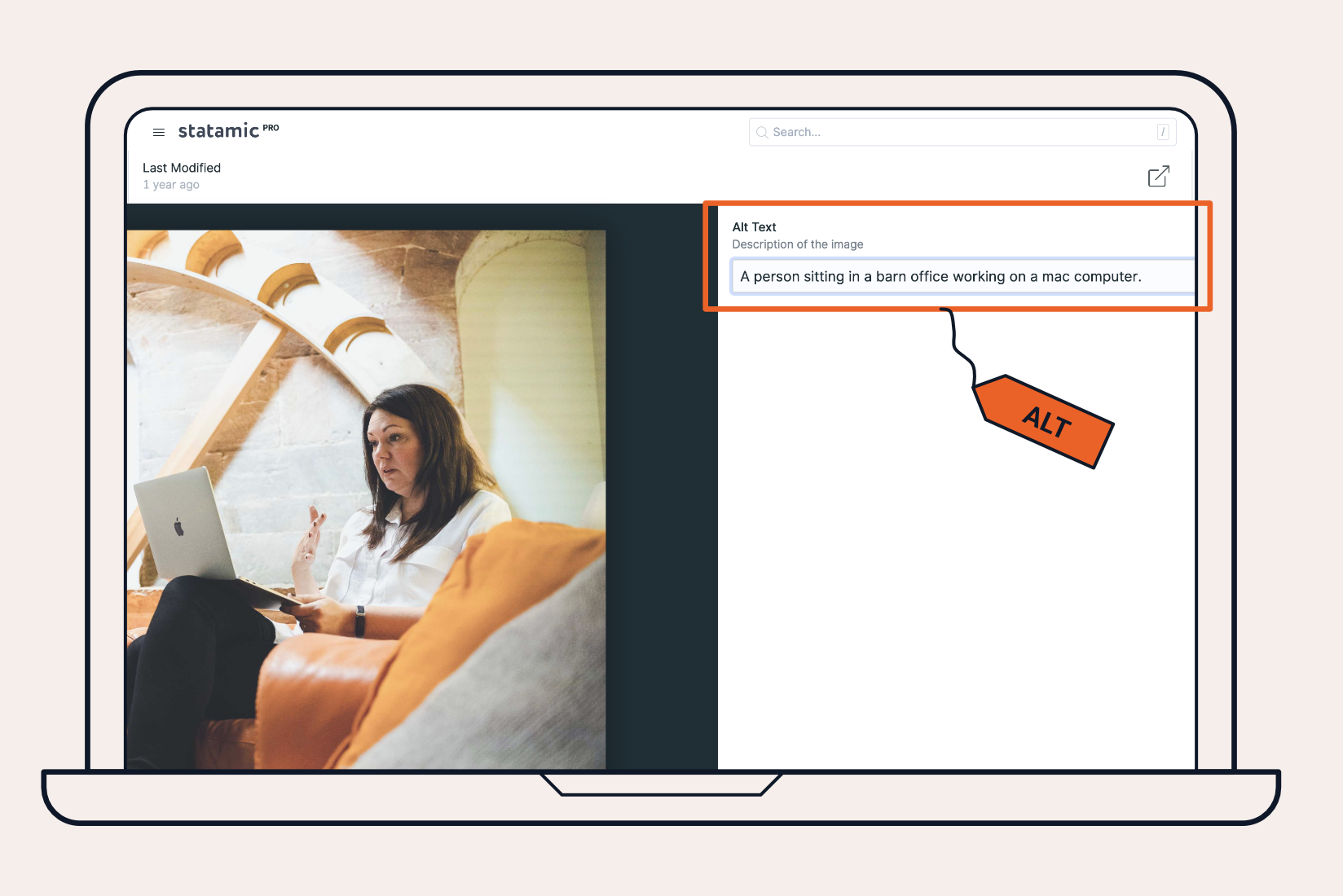We’re taking our meetings online.
We are using a range of online video options so please get in touch to have a chat.

Need expert advice?
Why not give us a call and see how we can help you with your project?
01460 984284We are using a range of online video options so please get in touch to have a chat.

Why not give us a call and see how we can help you with your project?
01460 984284Jargon-free, experience-backed insights to guide your digital decisions.

Want to increase your click-through rate and rank higher on Google? Here’s one keyword for you…
Metadata.
Metadata is all the information embedded in your website’s code and content. It provides valuable information about your site’s pages, posts, and media – all vital code that search engines like Google need to rank your site. Without it, you lower your chances of landing in Google’s good books.
And I’m sure we all want good old Google to like us.
So what can you do to create killer metadata and draw your target audience to your website?
Let’s discuss 3 essential types of metadata you MUST master if you are serious about increasing your ranking.

Your meta title (or page title) doesn’t just sit on the search results to look pretty. It is the first touch point your audience will have with you before they even reach your website.
Their journey starts with a search input. Google then reads through all the sites that best match what the user is looking for. The goal is to make a match with their search index. The question, though, is how?
How can you create a page that matches a user's search and ranks well on Google? And, more importantly, how do you get them to click?
Make them compelling. A compelling meta title is more likely going to increase your click-through rate. Avoid long-winded titles or technical jargon and stick to what your audience is looking for.
Use target keywords. Make sure to use keywords in the title. Sounds obvious, right? But it can be easily overlooked. Think about your audience and what they will be typing in that search bar. And voila! There you have your keywords, ready to include in your meta title!
Keep them short. Hate being cut off mid-sentence? Let’s make sure Google doesn’t do that to you! Long, wordy page titles will get snapped off by search engines and end up making your title look unpolished in the search results. To avoid that, limit your page title’s character count.
morphtip! Contrary to what some say, Google doesn’t have a maximum character limit. Instead, it uses a pixel width. That’s why we can’t be too dogmatic on the specific number of characters. However, the recommended character count for meta titles is around 30 – 60 characters. Use that as a benchmark and you can be sure Google won’t cut you off!

A meta description is a snippet of content that gives your audience a taste of what’s to come when they click on your website. Now that means you have to write some juicy, appealing meta descriptions if you want them to click! So what makes a meta description juicy?
Write about the benefits. How will your audience benefit from your content? Adding a benefit adds weight and value to your meta descriptions and will compel your audience to click click click!
Identify a USP. What will your audience get from you that they won't get from someone else? Including a unique selling point of yours will make you stand out against competing search results.
Keep them unique. Don’t go the “easy” route and copy-paste a meta description across all the pages on your site. Even though your audience may not notice this from one single search result, search engines will. And you’ll lose brownie points with Google. Be creative and take a little more time out to write a unique meta title for each page.
Keep them simple. As mentioned earlier, the shorter the better! Not only does it prevent Google from cutting you off but you also have a higher chance of winning over your audience when your descriptions are short, simple, and concise. The benchmark is around 130 – 160 characters, making sure you stay within Google’s pixel width.
Use target keywords. Use a few keywords in your meta descriptions to help improve organic search results and bump you up to the top of Google. But be careful not to keyword stuff. Keep it user-friendly for humans to digest.
morphtip! Avoid using special characters in your meta descriptions. Google is a picky one, and special characters don’t really make the cut.

Are you using image alt text as part of your SEO strategy? If not, here’s why you should.
Forgetting to utilise alt text means you are not optimised for image searches, making up over 20% of global web searches. 20%! That’s pretty significant!
But what exactly is alt text?
Image alt text is a brief but thorough description of an image on your page. When your target market searches for something on Google Images, it increases your chance of having them visit your site.
However, it’s main purpose is to make web content even more accessible to individuals who rely on screen readers. By utilising alt text, everyone can access and understand the content your business is uploading.
Want to master the art of alt text?
Be detailed and specific. Instead of just using keywords, write a full sentence that describes what is going on in the image along with specific details, such as names, places, etc. You really maximise the effectiveness of your alt text when you are as precise as possible.
Keep it concise. It’s not always easy striking the balance between short and descriptive, I’ll give you that. But keeping your alt text to one short sentence will make it easy for search engines to read.
Don’t copy and paste. Just like your meta descriptions, you want each individual image to have its own unique alt text. None of your images are the same, so why should your alt text be?
How morphsites adds alt text

Many businesses are missing out on the awesome results of strong metadata.
Don’t let yourself be one of them! If you haven’t done so already, start adding quality meta titles, meta descriptions, and alt text to your pages and start seeing results.
 The hidden cost of indecision
The hidden cost of indecision
 Finding the extraordinary in the ordinary
Finding the extraordinary in the ordinary
 Before you build, find out if you should
Before you build, find out if you should
 Are you solving the right problem?
Are you solving the right problem?
 More signal, less noise
More signal, less noise
 Do you still need an agency in 2025 or can AI do it all?
Do you still need an agency in 2025 or can AI do it all?
 Is AI changing how we should plan websites and marketing strategies?
Is AI changing how we should plan websites and marketing strategies?
 Planning a Website or Digital Project? Here’s What to Do First.
Planning a Website or Digital Project? Here’s What to Do First.
 Can AI replace your development team?
Can AI replace your development team?
 Why one client spent 10x more on a custom website and never looked back
Why one client spent 10x more on a custom website and never looked back
Not sure where to start with your digital project?
We’ve guided businesses through complex builds, integrations, and marketing strategies. Let’s have a conversation about how we can support your goals.

Need expert advice?
Let’s talk results
© 2025 morphsites Ltd. All rights reserved E&OE. Registered in England no. 07116238. The ‘morphsites’ wordmark and butterfly device are registered trademarks of morphsites Ltd.